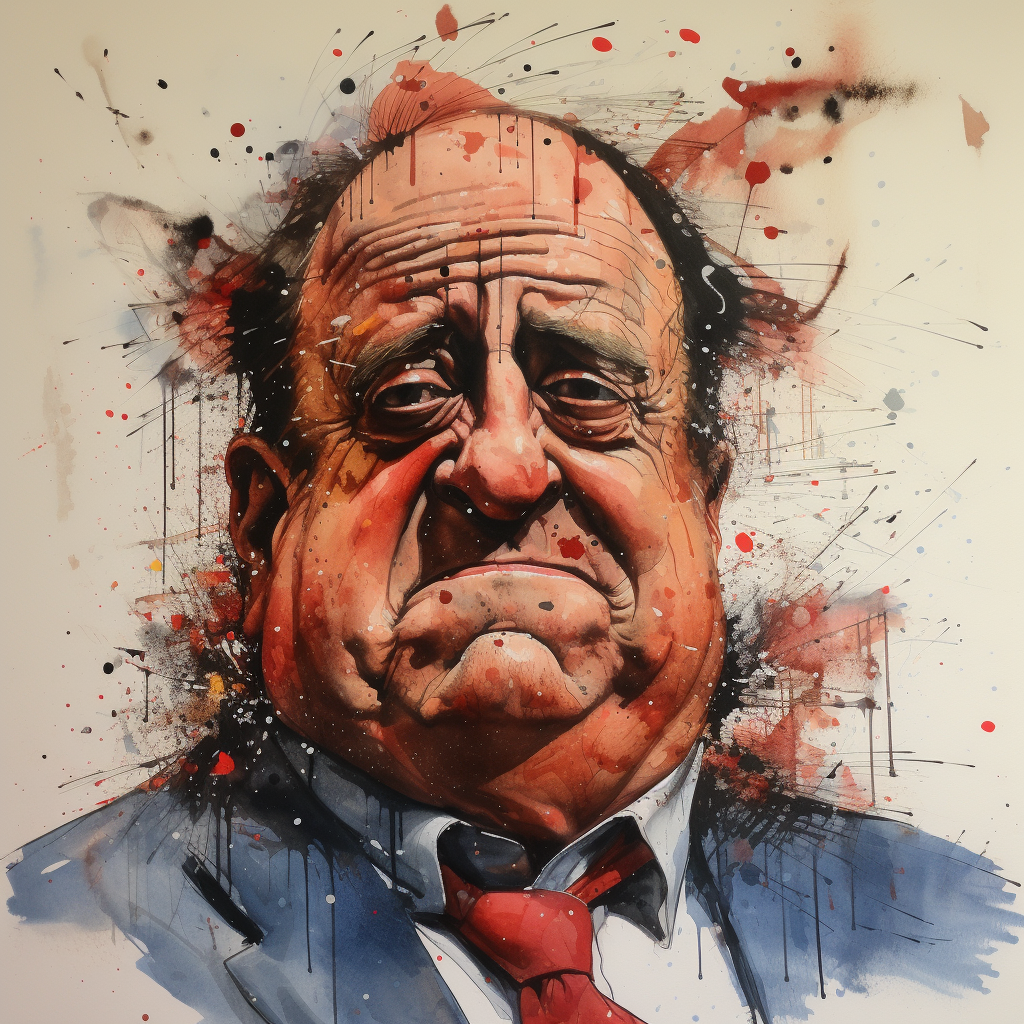Empire of Ego: The Spectacular Decline of ESPN
Image credit: Joe Daly
Once the glittering jewel in the sports broadcasting crown, ESPN now stands as a decaying monument to its own grandiose ambitions, a once-mighty titan now staggering under the crushing weight of its bloated ego and breathtaking greed. Like a sneering, guileless ringmaster in a broken-down circus packed with tired old acts, ESPN continues to parade its tattered glories, oblivious to the jeers of a disillusioned audience. Theirs is a tale of withering decline, a saga of a network that once soared on the wings of innovation only to plummet into the abyss of mediocrity. Here, in the dimming spotlight, amidst the echo of past triumphs, lies a network drowning in the quicksand of its own legacy, a behemoth blinded by the glare of its former brilliance. While hindsight tends to offer 20/20 clarity, many of ESPN’s greatest missteps have played out with blinding searchlights illuminating management’s teeming incompetence in real time. Gazing back across decades of culture and entertainment, one thing is certain: in the twisted labyrinth of the media world, the path to irrelevance is paved with self-indulgence and complacency. Here are six moments that underpin the slow, inexorable unraveling of a once-proud empire.
1. The Jemele Hill Controversy (2017)
When Jemele Hill, a prominent ESPN anchor, tweeted her personal views that Donald Trump was a “white supremacist” who “has largely surrounded himself w/ other white supremacists,” she set of a powder keg of debate around not just the political landscape but around social media and the precarious triangle between employers, employees and social media. Trump demanded a network apology and Hill received a two week suspension, which did little to quell the rage on either side. Hill received hate mail by the truckload and credible death threats in the wake of the squall. it wasn't just the content of Hill’s tweet that proved incendiary but ESPN's response. In their attempt to straddle the line between appeasing both sides of the political spectrum, they ended up alienating both. This incident wasn't just about politics; it was about a network losing its backbone, sacrificing the integrity and voice of its journalists on the altar of public relations.
2. The Exodus of Top Talent (2007-2018)
ESPN's roster once read like an All-Star team of sports journalism. Bankable names like Dan Patrick, Jason Whitlock, Bill Simmons (Holy Cross, ‘92) and Keith Olbermann had become cultural institutions in and of themselves. However, their departure signaled more than just a loss of talent; it reflected a seismic shift in the network's culture and priorities. The network, once a haven for journalistic creativity and insight, transformed into a factory of cookie-cutter content, where sensationalism trumps substance. For years, the network boasted a diverse pantheon of talent, each talking head bringing a distinct voice to the network. By 2018, the once-vibrant roster had morphed into thirty versions of the same single, tedious sportscaster personality.
3. The Embrace of Faux Debate and Hot Takes (2010s)
The pivot towards debate-centric programming marked a significant turning point — in the wrong direction. In particular, First Take and Pardon the Interruption emerged as turgid, festering sores, oozing the pus of mediocrity onto viewers who, in a dull-eyed masochistic fugue state, endure their insipid charade — a grotesque mockery of intelligent discourse, where the art of conversation is barbarously disemboweled daily and the only winners are the execs laughing maniacally as they haughtily urinate on the walls of the once-sacred temple of sports journalism. These shows are wholly bereft of substance and intelligence, instead choking the airwaves with hot takes and manufactured conflicts, turning what was once a hub of insightful sports analysis into the equivalent of a room full of meth heads talking about aliens. It was a brazen and horribly short-sighted play for ratings, but at what cost? Just the network’s integrity.
4. The Decline in Quality of Monday Night Football (2010s)
Monday Night Football, once the crown jewel of ESPN's programming, has seen a staggering decline in quality. Joe Buck reigns as the supreme overlord of mediocrity, mercilessly drowning out Troy Aikman's nuggets of insight with a relentless torrent of banal chatter, his voice a smug and monotonous drone that blots out excitement and insight like a black hole swallowing the light of wisdom in a universe starved for thoughtful commentary. It’s not just the mind-numbing prattle wafting out of the booth, either; the overall production has withered into a shadow of its former self. It's no longer a celebration of America’s greatest sports passion but about filling time slots and ad breaks —often ads for more ESPN shows. The magic of Monday nights, once a staple for any sports fan, has been extinguished by a blinding parade of vapid commercials and corny self-promotion.
5. Layoffs and Budget Cuts (2017)
In 2017, ESPN executed a grim reaper's sweep, axing around 100 employees, including seasoned on-air talent and visionary, sharp-witted writers. This wasn't just a slash-and-burn cost-cutting exercise; it was the excision of the network's creative core. These layoffs symbolized more than just financial woes; they were a distress signal from a sinking ship, a sign of a network in tumultuous waters, losing not just its financial footing but its editorial direction. The casualty list read like a roll call of the talented and dedicated and ESPN discarded these individuals with the same emotional attachment that a gambler shows for losing betting slips. The layoffs marked the transformation of ESPN from a pioneering leader in sports media to a hollowed-out husk, driven by bottom lines rather than storylines, where the roar of the crowd was replaced by the clinking of coins.
6. Chris Berman - The Embodiment of Decline
Chris Berman, once a titan of sports broadcasting, has emerged as the bloated, painted, fake baked symbol of ESPN's propitious decline. Initially celebrated for his charismatic delivery and memorable pop culture catchphrases, Berman morphed into a caricature of himself, a wheezing blowhard who seemed more enamored with his own celebrity than with the sports he was covering. His on-air performances grew increasingly stale and self-indulgent, mirroring ESPN's own shift from pioneering journalism to superficial entertainment. Berman's inability to step away from the spotlight, returning after a brief retirement, is emblematic of ESPN's broader issue – an unwillingness to evolve and to let go of past glories. This clinging to old, worn-out faces and formulas, instead of injecting fresh perspectives and innovative approaches, underscores ESPN's descent into irrelevance. In Berman, we see not just a broadcaster past his prime but a network stubbornly refusing to acknowledge that its heyday is well and truly over.


